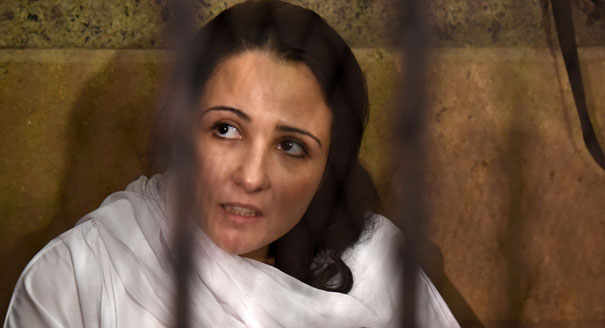Some Egyptian visitors to Washington asked me recently what could be done to avoid persistent “miscommunication” between Egyptians and Americans about human rights. I replied that this was not a question of miscommunication, but rather of a genuine and longstanding difference.
Americans and Egyptians tend to agree on the nature of the challenges Egypt faces—economic problems, terrorism—but not on the solutions. Americans, even in the age of Donald Trump, are mostly skeptical that imprisonment of political dissidents, the systematic use of torture, extrajudicial killings, and so on, are a way to defeat terrorism and insurgency. Nor do they see a military encroaching increasingly on the economy as a path to prosperity. Egyptian regimes—most of all that of Abdel-Fattah al-Sisi—beg to differ.
In the United States, the interest in making the principle of defending and advocating internationally recognized human rights norms part of foreign policy generally resides in Congress. There have been a few U.S. presidents who were particular enthusiasts about making human rights (Jimmy Carter), democracy (Ronald Reagan), or freedom (George W. Bush) central themes of foreign policy, but they were exceptions. Most of the time it is members of Congress who press such agendas, using the power of the purse to compel the State Department and other executive agencies to implement them.
The Tom Lantos Human Rights Commission of the U.S. Congress held a hearing on Egypt on December 6, at which I was asked to make some recommendations about how the United States could engage more effectively.
During my testimony, I argued that the United States had a strong interest in improved human rights conditions in Egypt as well as a responsibility to press for them. Egypt’s extreme human rights abuses are driving youth toward violence and alienating sectors of the population needed to fight terrorism, leading to increased threats to U.S. allies and interests. Moreover, the longtime security assistance relationship—more than $47 billion since the mid-1970s—means that Washington cannot claim to be neutral regarding the behavior of Egypt’s military-led regime.
It is by no means simple or straightforward to figure out what the United States can do regarding the behavior of another government, but I argued that as Americans we must look ourselves in the mirror and ask whether we are truly playing the most constructive role possible when it comes to our interests and those of Egypt. I made the following specific recommendations:
- Ensure that U.S. security assistance to Egypt is not used to carry out human rights abuses. Within the past year alone, evidence has emerged that U.S.-provided equipment has been used to carry out summary executions in Sinai, and that American-trained security units have performed degrading exams on suspected members of the LGBT community. The U.S. government should implement the recommendations contained in the April 2016 General Accountability Office report calling for strengthening end-use monitoring and human rights vetting, which the government of Egypt has often blocked.
- Act more assertively on behalf of American citizens and organizations that have been targeted in Egypt. Whether we are speaking of American citizens who have been wrongfully imprisoned or the employees of American organizations and their Egyptian partners who have been unjustly prosecuted, it is imperative that Congress and the administration press for full resolutions, such as releases, acquittals, or pardons. No one in Egypt will take U.S. concern for rights and freedoms seriously if the United States does not even stand up for its own citizens and organizations.
- Conduct the bilateral security assistance relationship with Egypt so as to signal that security and human rights are not separate realms, but rather deeply connected. Maintain or expand the percentage of security assistance funds that can be withheld based on human rights conditions, and remove the waiver for national security interests, or at least add clear benchmarks. Congressionally-imposed conditionality has provided unprecedented leverage, which the Trump administration is now using to show concern about a number of issues, including human rights and the situation of non-governmental organizations.
- Build an enduring relationship with the citizens of Egypt by showing that the United States is aware of their concerns and is using all venues to advocate respect for their rights. While U.S. officials and some members of Congress are reluctant to publicly mention concerns about human rights violations for fear of offending Egyptian government interlocutors, it is important and effective to do so. The current administration should not repeat the mistake made during the term of deposed Egyptian president Mohammed Morsi, when the failure of U.S. officials to criticize his undemocratic actions fueled anti-American sentiment and conspiracy theories about U.S. intentions. The United States should call on the Egyptian government to accept visits and reports by the United Nations High Commissioner on Human Rights as well as UN special rapporteurs to investigate alleged torture, extrajudicial killings, and other abuses, and should speak up in the UN Human Rights Commission. U.S. officials and members of Congress should make public mention of particularly important or egregious cases.
The argument that is often made against active engagement on human rights issues in Egypt is that no matter what the United States does, the situation will not improve. That is not true. The actions of members of Congress and U.S. officials have an effect. Sometimes the effect is direct and prompt. At other times it is indirect, but no less important.






